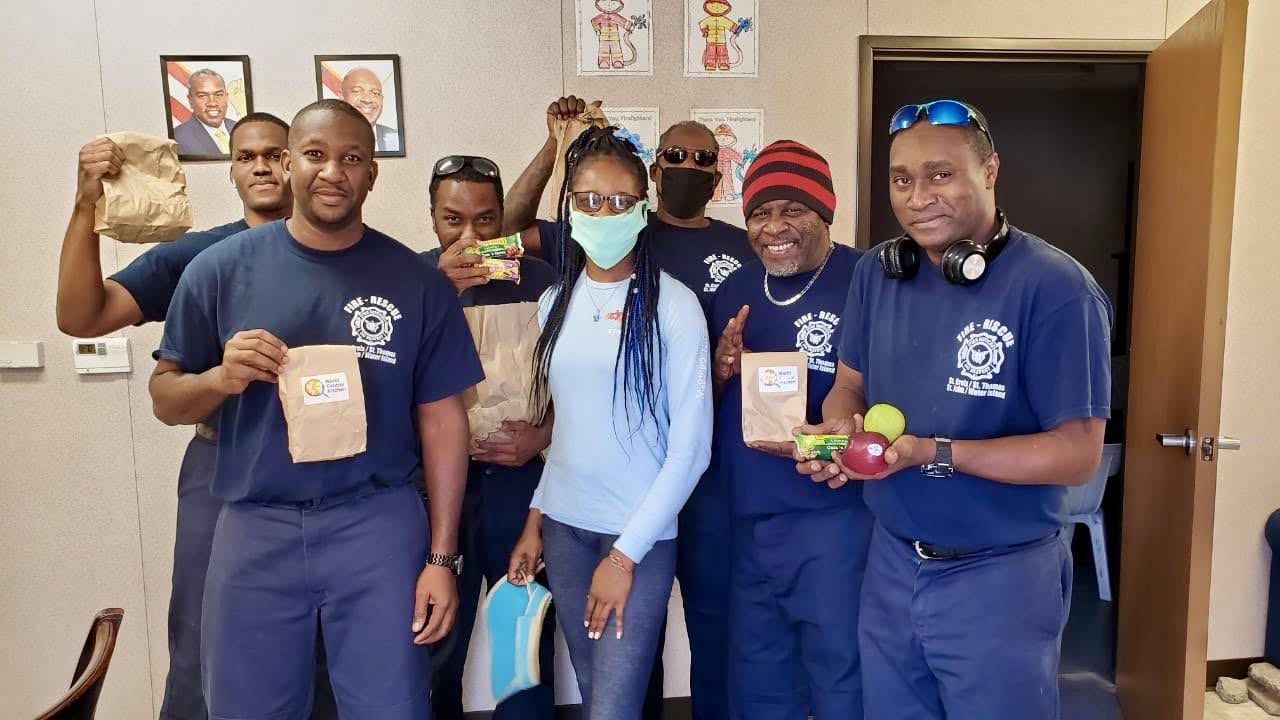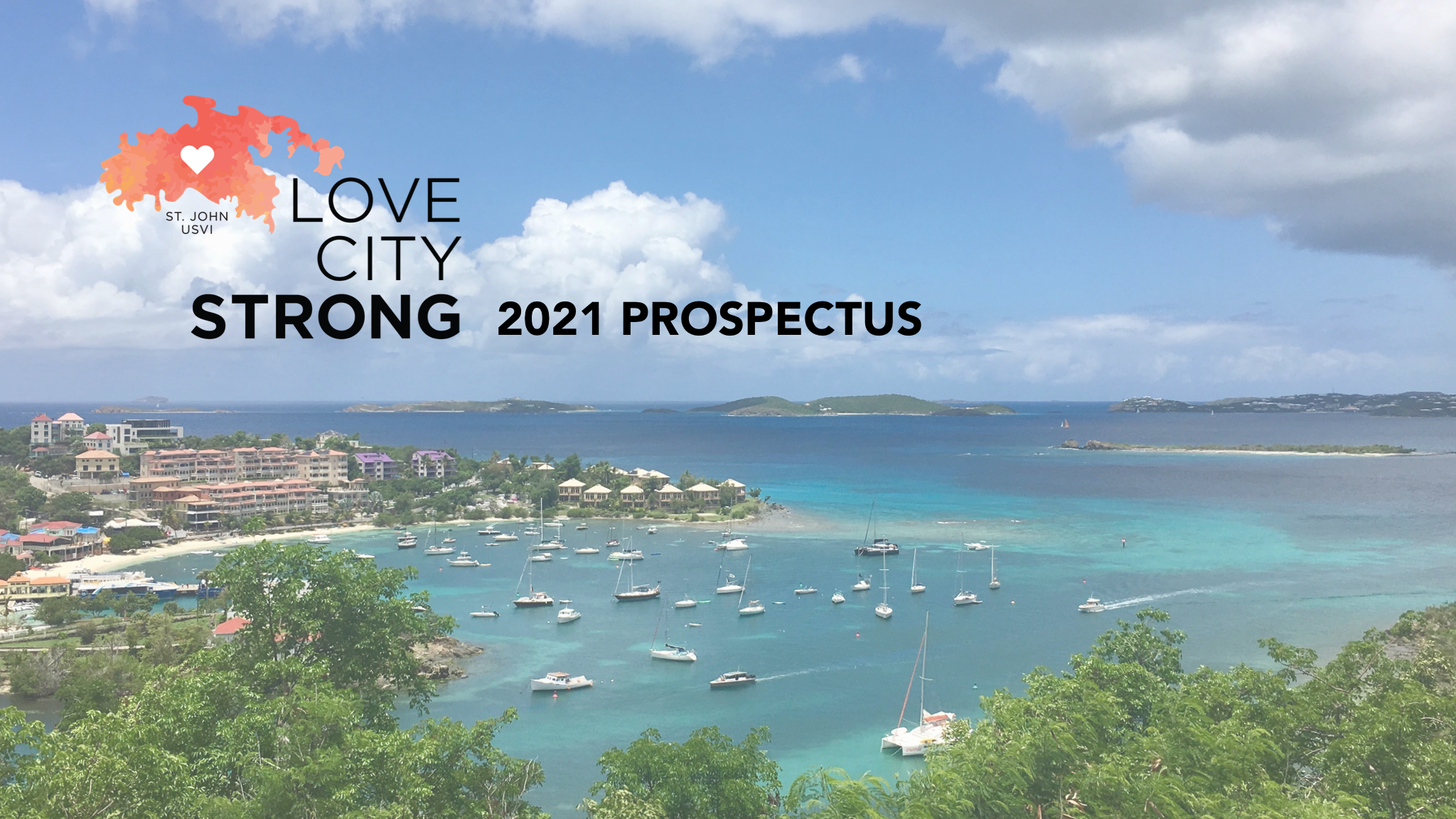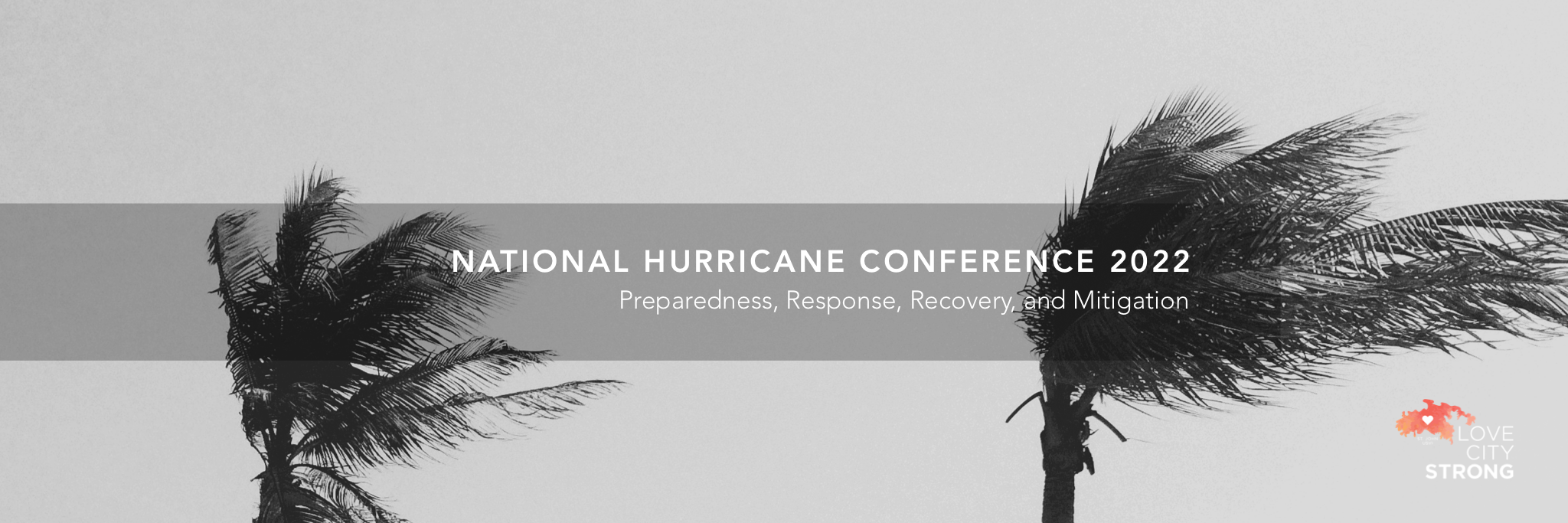
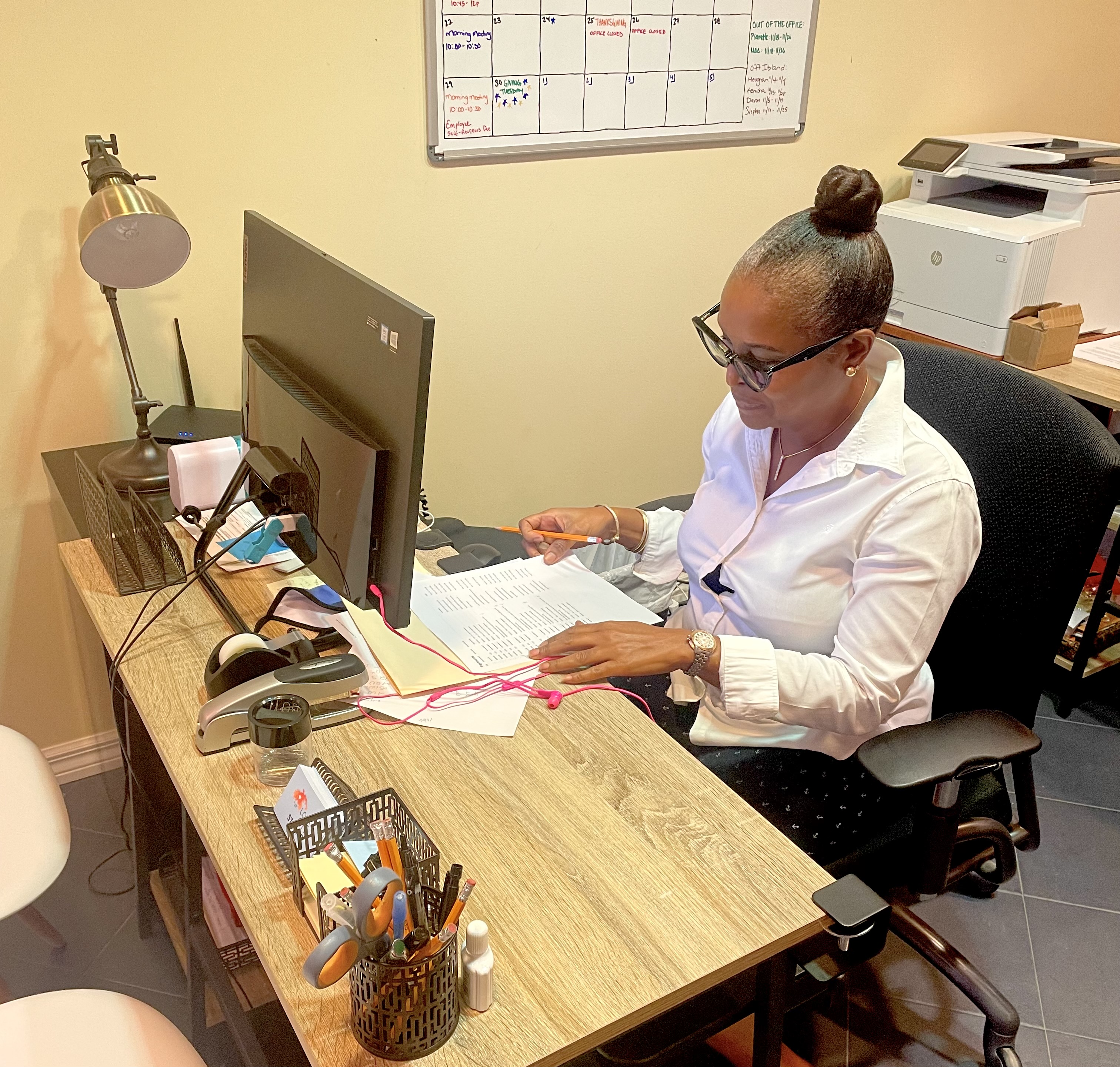
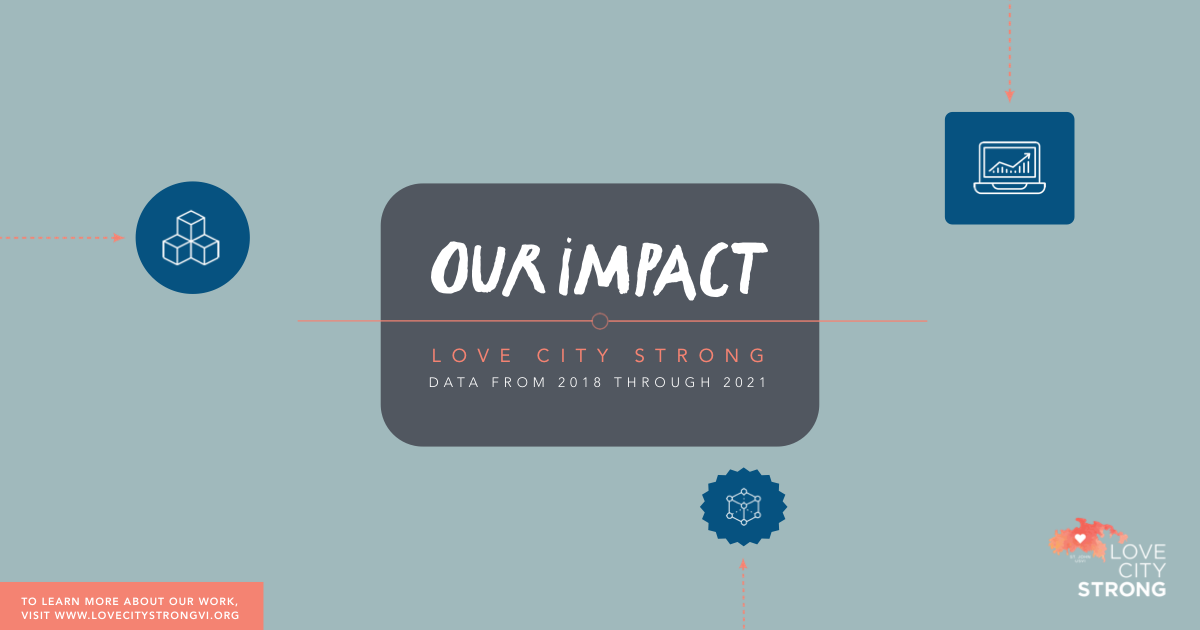
- Rebuilt 36 homes.
- Installed 70 water filtration systems, serving 223 people. As a result, we replaced the consumption of 2,680 plastic water bottles per month.
- Remediated mold in over 100 homes.
- Made or replaced 200 address signs for seniors and families.
- Pre-staged MREs and boxed water across the island to last 5,000 people for one week after a disaster.
- Delivered sandbags to an average of 75 seniors per year.
- Trained more than 50 people across multiple first responder programs, like CERT and Stop the Bleed.
- Delivered 12,000 meals directly to seniors and families during the first COVID-19 lockdown.
- Distributed over 4,000 reusable masks throughout the community.
- Supported mass-vaccination efforts on St. John for 8 weeks, helping hundreds of residents and visitors to get their shots.
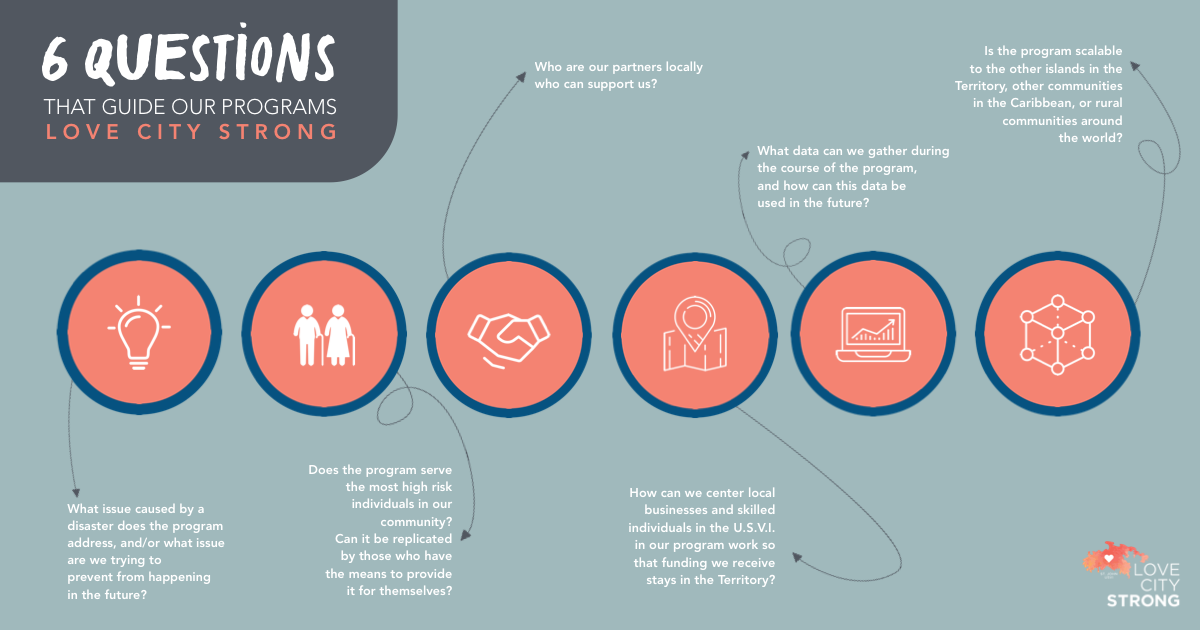
- What issue caused by a disaster does the program address, and/or what issue are we trying to prevent from happening in the future?
- Does the program serve the most high risk individuals in our community, and can it be replicated by those who have the means to provide it for themselves?
- Who are our partners locally that can support us?
- How can we center local businesses and skilled individuals in the U.S.V.I. in our program work so that funding we receive stays in the territory?
- What data can we gather during the course of the program, and how can this data be used in the future?
- Is the program scalable to the other islands in the territory, other communities in the Caribbean, or rural communities globally?
- We are addressing the massive loss in permanent low and middle income housing suffered as a result of Hurricanes Irma and Maria. Moreover, we want to rebuild homes so that they’re more storm resilient in the future.
- The program serves seniors, families with children and infants, and individuals with a disability or a chronic health condition. All of our clients are typically underserved by existing hurricane recovery/rebuild programs.
- We identified the St. John Community Foundation to help us with case management and All Hands and Hearts (who were on an extended mission in the USVI at the time) to help with on-site labor via their volunteers.
- We hired St. John-based construction companies and licensed contractors to perform all rebuild work, purchased our supplementary tools and equipment from businesses on St. John and St. Thomas when possible, and ordered building materials either from local suppliers or from Puerto Rico.
- We keep track of all of our expenses for each site to help federal partners like FEMA. This facilitates a better understanding of the true cost of housing rebuild on St. John; factoring in volunteer labor, shipping, and more.
- With local case management who live in and are a part of the community that they serve; strong partnerships with local contractors and suppliers; and access to both private and government funding, this program can be replicated in communities similar to St. John.
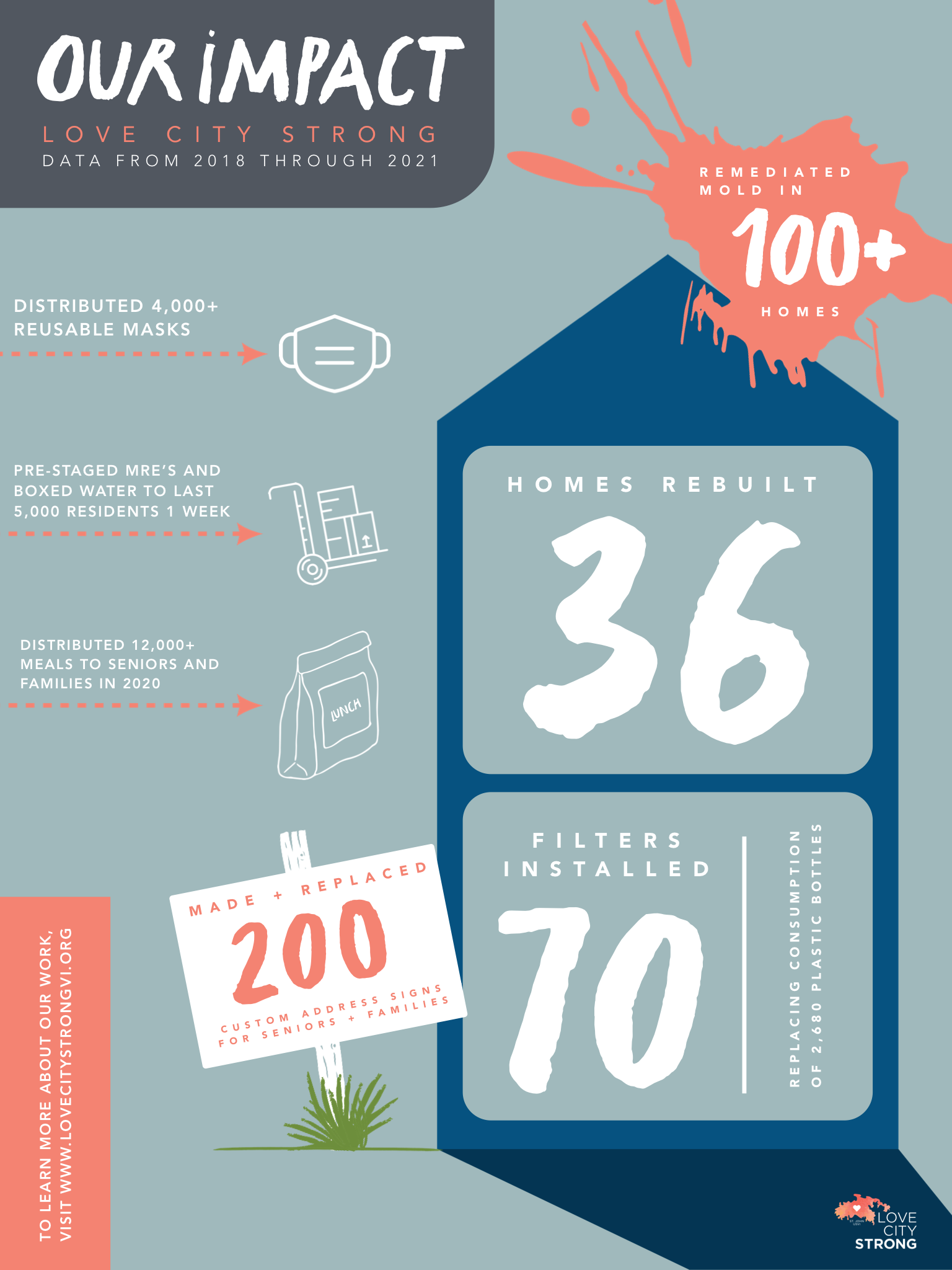
2021 Prospectus
This month Love City Strong is excited to share our updated 2021 Prospectus.
This document outlines our organizational priorities and ongoing projects, including COVID-19 response and our continued efforts supporting vaccinations on St. John. In 2020, we shifted this document from its previous physical form to a living, online version in order to reach a larger audience.
What is a Prospectus?
A prospectus is a document that describes a school, organization, or potential project in order to attract or inform clients, buyers, or investors. For our purposes, the prospectus is a part of our efforts to keep our current and potential donors engaged in our activities and plans for the future.
What is included in the Prospectus?
The document revisits our core mission and values as an organization. In addition, it breaks down our accomplishments and upcoming goals for each of our ongoing projects. It specifies the impact that our projects have had on the community, highlighting measurable outcomes and progress. Finally, it identifies tangible results tied to various donation amounts, in each project area.
How can I help?
This year, the Caribbean faces yet another active hurricane season, and based on recent evidence we know that storms are coming through more often and with more intensity. Community preparedness, which is at the core of the Love City Strong mission, is more important than ever.
If St. John holds a special place in your heart and you’re emotionally invested in our recovery from Hurricanes Irma and Maria and the COVID-19 pandemic, please take a few moments to read through this year’s Prospectus and share it with your friends and family!
If you are able, consider making a donation, or sign up as a monthly donor, to help us build a stronger and more resilient community as we continue to recover.
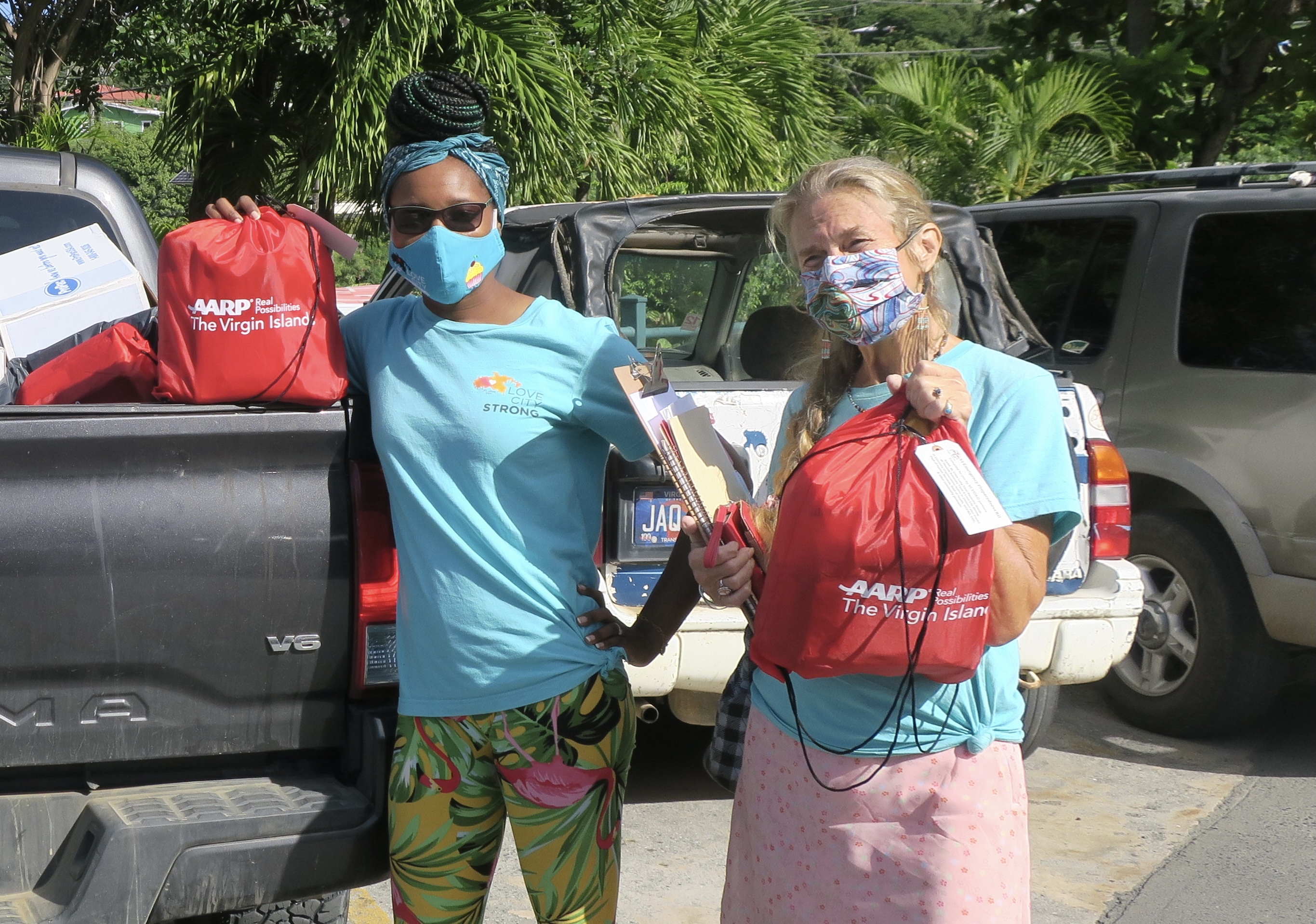


Today, we wanted to take a moment to express gratitude to the many individuals and groups that have helped make Love City Strong’s progress in 2020 possible. Although this year has been challenging to say the least, we are overwhelmed by the constant kindness and support of so many different individuals and groups that have helped us remain true to our mission and purpose.
First, a huge thank you to our many donors and grantors for making our programs possible. This year we are particularly humbled by the generosity of Bloomberg Philanthropies, the Community Foundation of the Virgin Islands (CFVI), and the Center for Disaster Philanthropy (CDP). Each of these foundations allowed us to both extend and modify grant funding in order to address community needs related to the COVID-19 pandemic. Their flexibility has been vital to our successes this year, and has helped us make real differences in the lives of hundreds of St. John residents. Since the beginning, our Board has continuously helped fund our projects and has kept us on track so that we can continue making a big impact on St. John for years to come. Thank you Tom Secunda, John McInnis, Jarrod Bernstein, Ian Samuel, and Tenesha Keyes for your exemplary leadership and support especially during such unprecedented times. Thank you to our team for working so hard all year, and constantly pivoting to address multiple challenges while remaining supportive of each other and committed to your community. Your tireless dedication is a constant inspiration. There are dozens of St. John businesses and licensed professionals that help by lending their technical expertise to the work that we do. We would like to extend a special thank you to Big Planet, Cutting Edge Construction, J&D Woodworking, Joel Penn, Ralph Carbon, Rebecca Reinbold, and St. John Projects for working alongside us to make a difference this year, and in years past. Nothing that we do would be possible without key organizational partners in the public and private sectors. In 2020, we are so grateful for the support of the CDC, FEMA, High Tide, Island Health & Wellness Center, Love City Mini Mart, Papaya Cafe and Bookstore, Paradise Lumber, ShoreIQ, Skinny Legs, Starfish Market, St. John Brewers, the St. John Community Foundation, St. John Hardware, St. John Rescue, Sosa’s Food Truck, Tony’s Kitchen, the Virgin Islands Department of Health, the Virgin Islands Department of Human Services, the Virgin Islands Fire Department, and VITEMA just to name a few! The challenges we faced as an organization in 2020 have brought our staff closer together, and renewed our commitment to our clients and supporters. This year has reminded us that life is full of uncertainties, and in order to be truly prepared, we must be flexible and willing to overcome obstacles by working together. We must also remember to be grateful for those in our lives who lift us up and support us in our time of need. We encourage everyone to take a moment and extend your thanks to the important people and groups in your life. Take the time to express your gratitude, and in doing so, renew your commitment to making your community a better place.